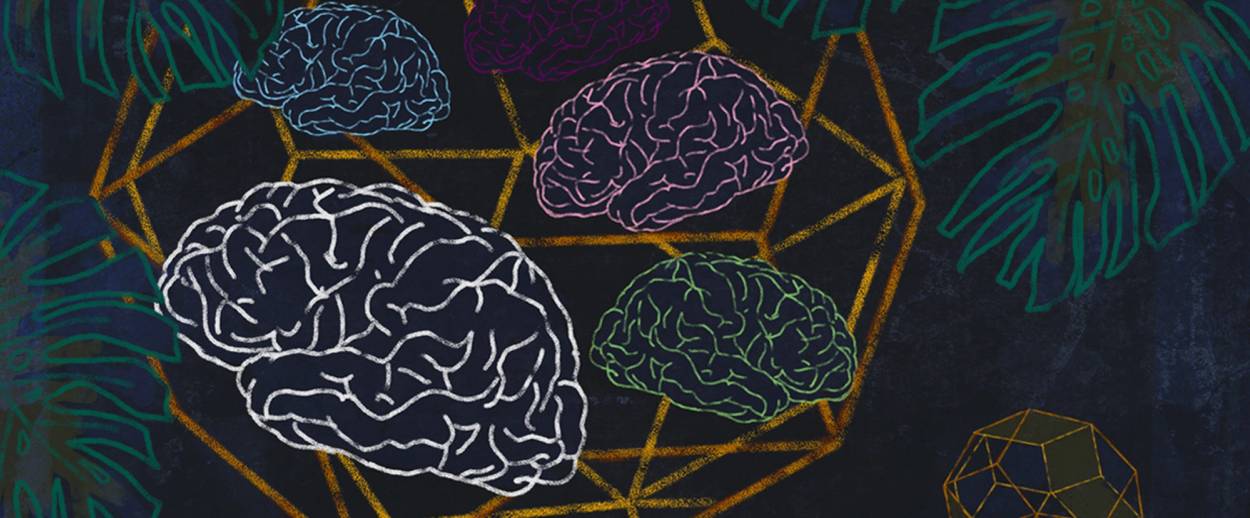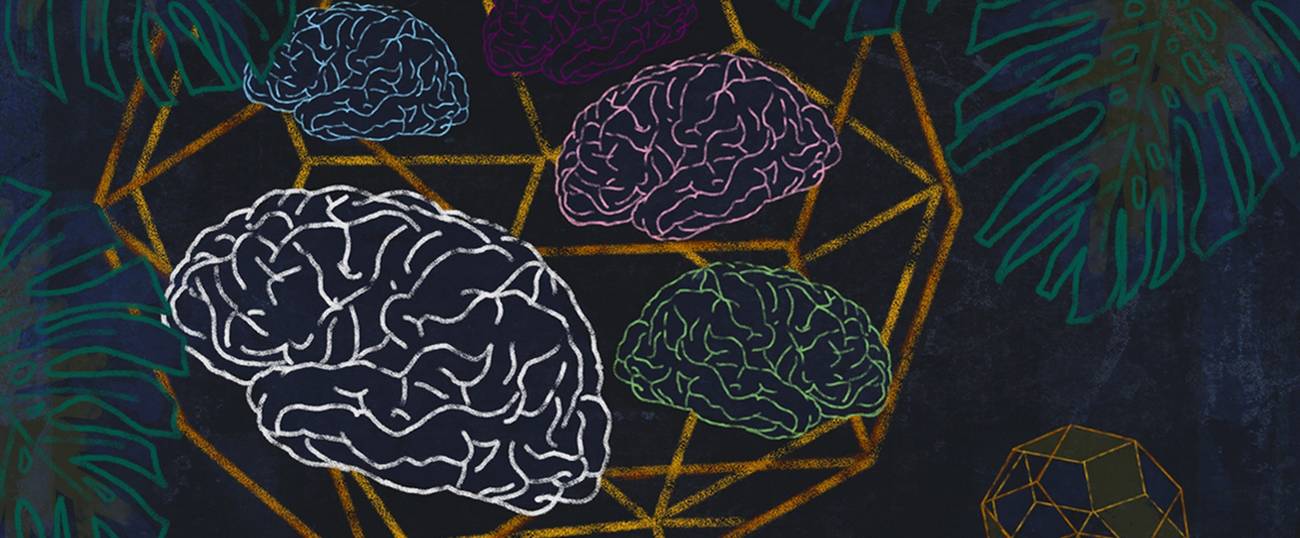‘Against Everything’ Is a Brilliant Exercise in Hope
Mark Greif’s thought-provoking new collection of essays defiantly refuses to lay waste our powers, getting and spending




What does it mean to be, as Mark Greif says he is in the title of his new collection of essays, Against Everything? It sounds like the motto of a nihilist or a misanthrope, someone who writes out of disgust and anger. But perhaps a nihilist is only a disappointed utopian, against everything because he can’t find anything good enough to be for—like Kafka’s Hunger Artist, who starved to death because he couldn’t find any food he liked. And the truth is that Greif, as we come to know him in these essays, is a deeply hopeful thinker, full of visions of a better, even perfect, world. His disciplined, thoughtful critiques of all manner of cultural phenomena—from YouTube videos to the mania for exercise—rest on an intuition that the world we have been given is not good enough.
Greif’s inspiration is not Nietzsche but Thoreau, who withdrew from a corrupt world in order to find the better, truer life that he was sure existed. In the introduction to his book, Greif—who grew up in the suburbs of Boston, not far from Walden Pond—says that he felt a kinship with Thoreau as soon as he heard about this contrarian, who “had written in his book that the things people considered superior were often inferior.” Even before he read Walden, Greif made Thoreau a personal symbol of strict judgment: “I knew a ‘philosopher’ to be a mind that was unafraid to be against everything. Against everything, if it was corrupt, dubious, enervating, untrue to us, false to happiness.”
Not a cynic, then, but some kind of believer, Greif is one of the leading spokesmen of a literary and intellectual cohort that sets great store by sincerity and hope. The essays in this book almost all appeared in the little magazine n+1, of which Greif is one of the co-founders, and it is the most significant body of work to have come out of that influential journal. The name of n+1 is susceptible of a cynical interpretation: It seems to say that here is the next thing in a series, valuable simply because it is inevitable. There is an echo of tech-talk, whose new products and media always come with the implicit label “This is the future: There is no alternative.”
But the title n+1 can also be seen as a bare-minimum statement of social progress, in a utopian but non-ideological style that is highly characteristic of Greif’s generation (which is also my own). Partisan Review, which is the obvious model for n+1, was originally named that because it was sponsored by the Communist Party. But even after its founders, Philip Rahv and William Phillips, broke with the party and relaunched it as an independent left-wing journal, they retained the word “partisan” because of its suggestion of disciplined ideological engagement. Partisan Review ceased publication in 2003, and the first issue of n+1 appeared in 2004, making the passing of the intellectual mantle perfectly symbolic. Equally symbolic was the younger magazine’s decision to eschew any kind of partisan affiliation in its name. If n+1 names a politics, it is a politics of a purely formal hope, rather than a developed program.
This was a fitting political expression for a group of writers who were born in the 1970s, came to political consciousness with the end of the Cold War, and went to college in the palmy days of the End of History. Things changed quite rapidly after that—writers who are just 10 years younger than Greif had Sept. 11 as their political wake-up call, and they embraced a more aggressive left politics in response to the Bush administration and the financial crisis of 2008. Occupy Wall Street, which n+1 welcomed and wrote about, was a little too communal and activist to be a Thoreauvian exercise, though it shared something of the impulse to withdraw from the fallen world.
Though Greif stands firmly on the left and is clearly inspired by the Frankfurt School’s project of radical cultural critique, his approach in Against Everything is the opposite of Marx’s: He believes that to change the world you first have to interpret it. And he is appropriately rueful about the difficulty of translating cultural insights into political or practical advances. “This is not a book of critique of things I don’t do. It’s a book of critique of things I do,” he admits on the first page of the preface. He is speaking for “a class of people, call them the middle classes, or people in the rich nations,” and when he diagnoses the vices and illusions of that class, he does so in the first person plural. Perhaps, like Lionel Trilling, whose use of “we” was famous and famously slippery, Greif is really speaking to and for a smaller group than he thinks: not the bourgeoisie as a whole, but a young, urban, bourgeois intelligentsia, products of the best colleges, which, like every generation in history, found itself graduated into a world it never made.
If that description sounds close to the sociology of the hipster, who became a prominent cultural type in just the years Greif’s essays were written, he is well aware of the irony. One of the best essays in Against Everything is “What Was the Hipster?” in which Greif demonstrates his great skill at cultural observation and analysis. Everyone is at least vaguely aware of the hipster, as they are of most of Greif’s subjects (reality TV, food, pop music), but few people bother to think hard about such things and what they might mean. Greif, following in the footsteps of New York intellectuals like Clement Greenberg and Dwight Macdonald, has the ability to make the ephemeral reveal its deeper significance.
In the case of the hipster, that significance has to do with consumption as rebellion: “The hipster is a savant at picking up the tiny changes of rapidly cycling consumer distinction.” Greif himself could be called such a savant, so attuned is he to the minutiae of hipsterdom—such “jeans that were tight to the calves and ankles,” which he sees as “a cultural password” that defined “the vitality of the hipster community.” But his attunement is not a form of participation; rather, it is the prerequisite of dissent. So too with his analytic description of what goes on at the gym, in “Against Exercise”:
The gym resembles a voluntary hospital. Its staff members are also its patients. Some machines put you in a traction you can escape. Others undo the imprisonment of a respirator, cueing you to pump your lungs yourself, and tracking your heart rate on a display. … The curious compilation of numbers that you are becomes an aspect of your freedom, sometimes the most important, even more preoccupying than your thoughts of dreams.
Like a number of pieces in Against Everything, “Against Exercise” is at heart a meditation on the meaning of youth and adulthood, written by a man who was passing from one to the other. “Every exerciser knows that the body’s propensity to put on weight is the physical expression of a moral fall,” Greif writes, and he wants to come to grips with that sensation of falling into mortality. This is also the motive of “Afternoon of the Sex Children,” in which Greif meditates on the increasing sexualization of adolescents and of adolescence, the cultural agreement that teenagerdom is the best phase of life. As a man in his 30s, Greif recognizes the power of this nostalgia, but he is close enough to his own adolescence to know that youth is a “defective and insufficient premonition of a reality that will develop only in adulthood. We know the beauty of the young, which it is traditional to admire—their unlined features, their unworn flesh—but we also can know that the beauty of children is the beauty of another, merely incipient form of life, and nothing to emulate.”
What exercise mania and youth mania and food mania have in common is their separation of the self from its present reality, in the name of an empty perfection. You exercise and diet in order to look young, but in the process, you become estranged from your own body; you long for youth and so forfeit the prerogatives of adulthood. For Greif, this Thoreauvian critique of alienation goes hand in hand with a critique of capitalist consumer society, which cultivates our vain, empty “needs” in order to keep us on the treadmill of getting and spending.
It is a convincing notion, but in general, Greif is at his least authoritative when he talks about economics. He frankly admits as much in an essay titled “Gut-Level Legislation, or Redistribution,” in which he advocates capping incomes at $100,000, not because this is a possible or sensible plan but as a symbol of the idea that we should work for love and not money. Yet this idea is so profoundly utopian that it calls into question the premise of much of Greif’s thought.
Greif is on the left because he believes it is possible to transform society in such a way that the forms of alienation and false consciousness he diagnoses will disappear. Like many participants, he found a foretaste of this millennium at Zuccotti Park, five years ago this week: “The Democracy does not wear new clothes,” he writes, alluding again to Thoreau (“Beware of all enterprises that require new clothes”). “From up above, in air-conditioned rooms, one cannot smell that the Democracy is clean, sweet; so it is called smelly, dirty, unwashed.” As a description of actual conditions at Zuccotti Park—where there were no bathrooms, showers, laundry machines—this is, at best, poetic license. But if utopia is a poetic fiction, why should we expect it to emerge on Earth, either for society at large or in any of our actual lives? Maybe there is no route out of our fallenness; maybe it is the hubris of youth to think there is. To argue this point with Against Everything is not to dismiss Greif’s achievement, but the reverse. An intellectual’s job is to provoke thought and argument, and this Greif does as well as anyone writing today.
***
To read more of Adam Kirsch’s book reviews for Tablet magazine, click here.
Adam Kirsch is a poet and literary critic, whose books include The People and the Books: 18 Classics of Jewish Literature.